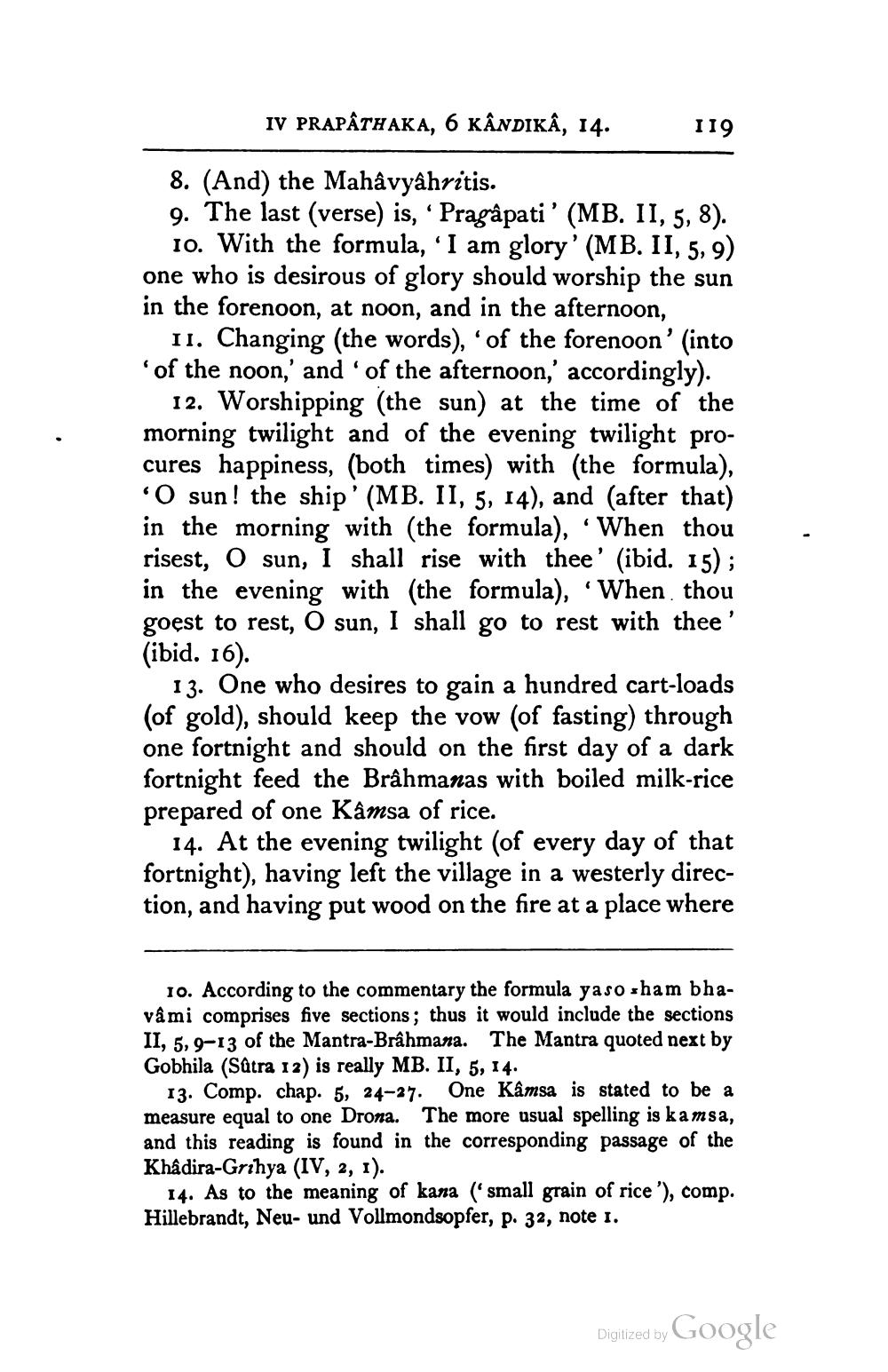________________
IV PRAPATHAKA, 6 KÂNDIKÂ, 14.
119
8. (And) the Mahâvyâhritis. 9. The last (verse) is, ‘Pragậpati' (MB. II, 5, 8).
10. With the formula, 'I am glory' (MB. II, 5,9) one who is desirous of glory should worship the sun in the forenoon, at noon, and in the afternoon,
11. Changing (the words), of the forenoon' (into of the noon,' and 'of the afternoon,' accordingly).
12. Worshipping (the sun) at the time of the morning twilight and of the evening twilight procures happiness, (both times) with (the formula),
O sun! the ship' (MB. II, 5, 14), and (after that) in the morning with (the formula), When thou risest, O sun, I shall rise with thee' (ibid. 15); in the evening with the formula), 'When thou goest to rest, О sun, I shall go to rest with thee' (ibid. 16).
13. One who desires to gain a hundred cart-loads (of gold), should keep the vow (of fasting) through one fortnight and should on the first day of a dark fortnight feed the Brâhmanas with boiled milk-rice prepared of one Kamsa of rice.
14. At the evening twilight (of every day of that fortnight), having left the village in a westerly direction, and having put wood on the fire at a place where
10. According to the commentary the formula yaso sham bhavâmi comprises five sections; thus it would include the sections II, 5, 9-13 of the Mantra-Brâhmana. The Mantra quoted next by Gobhila (Satra 12) is really MB. II, 5, 14.
13. Comp. chap. 5, 24-27. One Kâmsa is stated to be a measure equal to one Drona. The more usual spelling is kamsa, and this reading is found in the corresponding passage of the Khâdira-Grihya (IV, 2, 1).
14. As to the meaning of kana (small grain of rice'), comp. Hillebrandt, Neu- und Vollmondsopfer, p. 32, note 1.
Digitized by Google




